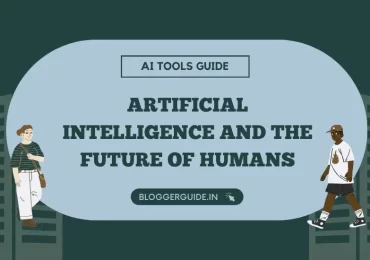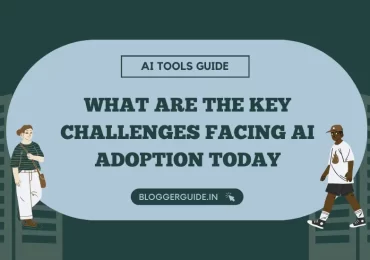AI in healthcare is transforming the medical landscape in 2024, bringing about revolutionary changes that promise to enhance patient care, streamline operations, and improve overall health outcomes. From diagnosis to treatment, artificial intelligence is making its mark across various aspects of the healthcare industry, offering innovative solutions to long-standing challenges.
As we delve into the five ways AI is revolutionizing healthcare this year, we'll explore how these advancements are not only changing the way healthcare professionals work but also how patients experience care. From personalized medicine to early disease detection, AI is paving the way for a more efficient, accurate, and accessible healthcare system that benefits everyone involved.
Table of contents
1. AI-Powered Personalized Medicine
Gone are the days of one-size-fits-all treatments. AI is ushering in an era of personalized medicine that tailors treatments to individual patients based on their unique genetic makeup, lifestyle, and medical history. By analyzing vast amounts of patient data, AI algorithms can identify patterns and suggest highly targeted treatment plans.
For instance, in cancer treatment, AI is helping oncologists determine the most effective chemotherapy regimens for each patient. This approach not only increases the chances of successful treatment but also minimizes side effects by avoiding unnecessary or ineffective therapies.
Moreover, AI is revolutionizing drug discovery by predicting how different compounds will interact with biological systems. This capability significantly speeds up the process of developing new medications, potentially bringing life-saving drugs to market faster than ever before.
2. Early Disease Detection and Diagnosis
AI is proving to be a game-changer in early disease detection, often identifying potential health issues before symptoms even appear. By analyzing medical imaging, lab results, and patient data, AI algorithms can spot subtle signs that might escape the human eye.
In radiology, for example, AI-powered systems are assisting radiologists in detecting abnormalities in X-rays, MRIs, and CT scans with remarkable accuracy. This not only speeds up the diagnostic process but also helps catch diseases in their early stages when they're most treatable.
I remember a colleague sharing how an AI system helped detect a small lung nodule that was easily overlooked in a routine chest X-ray. This early detection allowed for prompt treatment, potentially saving the patient's life. Such stories are becoming increasingly common as AI continues to enhance our diagnostic capabilities.
3. Virtual Health Assistants and Chatbots
AI-powered virtual health assistants and chatbots are transforming patient care and engagement. These intelligent systems can handle a wide range of tasks, from scheduling appointments to answering basic health questions, freeing up healthcare professionals to focus on more complex patient needs.
These virtual assistants are available 24/7, providing patients with instant access to health information and support. They can guide patients through symptom checks, offer medication reminders, and even provide mental health support through AI-driven therapy sessions.
Furthermore, these systems are continuously learning and improving, becoming more adept at understanding and responding to patient queries over time. This not only enhances patient satisfaction but also helps reduce the burden on healthcare systems by managing routine inquiries and tasks efficiently.
4. Predictive Analytics & Health Management
AI is revolutionizing population health management by leveraging predictive analytics to identify health trends and potential outbreaks before they become widespread. By analyzing data from various sources, including electronic health records, social media, and environmental factors, AI can predict disease outbreaks and help healthcare systems prepare accordingly.
This capability is particularly crucial in managing chronic diseases and preventing their progression. AI algorithms can identify high-risk individuals within a population, allowing healthcare providers to intervene early with preventive measures or targeted treatments.
For example, during a recent flu season, an AI system accurately predicted local outbreaks weeks in advance, allowing hospitals to prepare by stocking up on necessary supplies and allocating resources effectively. This proactive approach not only improves patient outcomes but also helps optimize healthcare resource allocation.
5. AI-Assisted Robotic Surgery
Robotic surgery, enhanced by AI, is taking surgical precision to new heights. These AI-powered surgical systems provide surgeons with enhanced dexterity, control, and visualization, allowing them to perform complex procedures with greater accuracy and less invasiveness.
AI algorithms can analyze pre-operative imaging and patient data to help surgeons plan the most effective surgical approach. During surgery, AI assists in real-time by providing guidance, monitoring vital signs, and even adjusting to unexpected situations.
The benefits of AI-assisted robotic surgery extend beyond the operating room. Patients often experience less pain, shorter hospital stays, and faster recovery times. As these systems continue to evolve, they promise to make even the most complex surgeries safer and more accessible to patients worldwide.
Conclusion
As we look to the future, it's clear that AI will continue to play an increasingly significant role in healthcare. These five areas represent just the beginning of AI's potential to transform medicine and improve patient care. From personalized treatments to early disease detection and advanced surgical techniques, AI is helping healthcare professionals provide better, more efficient care.
While challenges remain, such as ensuring data privacy and addressing potential biases in AI algorithms, the benefits of AI in healthcare are undeniable. As we continue to refine and expand these technologies, we can look forward to a future where healthcare is more precise, accessible, and effective for everyone. The revolution is well underway, and the possibilities for improving human health through AI are truly exciting.









